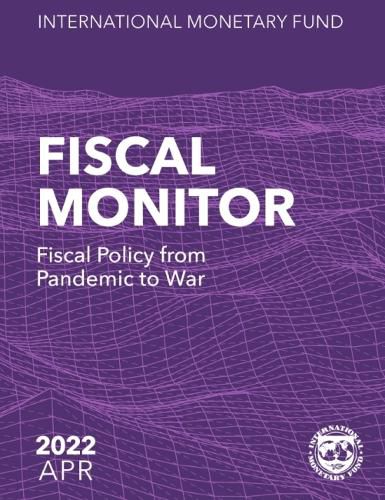Fiscal Monitor, April 2022: Fiscal Policy from Pandemic to War
International Monetary Fund

Fiscal Monitor, April 2022: Fiscal Policy from Pandemic to War
International Monetary Fund
Just as uncertainty associated with COVID-19 pandemic was abating, Russia invaded Ukraine. Uncertainty endured, shifting from pandemic to war, affecting all countries but in different ways. Above-target inflation rates and inflation surprises have helped reducing debt-to-GDP ratios but such relief is often temporary. High uncertainty and marked divergences across countries require a tailored and agile fiscal policy response that is ready to adjust as the outlook becomes clearer. Fiscal policy will need to shift focus away from the exceptional pandemic-related measures as central banks increase interest rates to fight inflation. Emerging and developing economies that are net importers of energy and food will be hit the hardest by surging international prices. Many of these countries already experience scarring from the pandemic and have little fiscal space to tackle new spending pressures. Government should focus on those most affected by the crisis and priority areas. Ensuring greater resilience through investment in health, food, and energy security from cleaner sources has become even more urgent. Global cooperation to achieve these objectives is more important now than ever. As countries strive to promote an inclusive and green recovery from the COVID-19 pandemic-and formulate responses to the immediate impacts of increased energy prices-they face shared challenges to secure tax revenues, address inequalities, and reduce greenhouse gas emissions. National tax policies are under pressure to deal with cross-border spillovers-one country’s action affects other countries. Chapter 2 discusses how international coordination on tax matters (i) reduces profit shifting by multinationals and tax competition between countries; (ii) improves tax enforcement by lifting the veil of secrecy to tackle tax evasion; and (iii) limits global warming. The current energy crisis reinforces the case for coordination among major emitters to reduce reliance on fossil fuels, urging countries to not allow near-term responses to detract efforts to establish credible policies for emissions reductions in the medium term.
This item is not currently in-stock. It can be ordered online and is expected to ship in approx 4 weeks
Our stock data is updated periodically, and availability may change throughout the day for in-demand items. Please call the relevant shop for the most current stock information. Prices are subject to change without notice.
Sign in or become a Readings Member to add this title to a wishlist.


